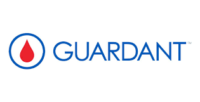
18 May Colon Cancer: Guardant Health Releases First Blood Test To Detect Early Stage Disease
MedicalResearch.com Interview with:

Dr. Talasaz
AmirAli Talasaz Ph.D.
co-CEO, Guardant Health
MedicalResearch.com: What is the background for this announcement?
Response: On May 2, Guardant Health announced the availability of Shield™, our first blood-based test for the detection of early-stage colorectal cancer (CRC).
Colorectal cancer is the second-leading cause of cancer deaths in the U.S., so this announcement represents a tremendous public health opportunity.
Here’s why: This new test will help people identify more CRC at its earliest stages, when it is most treatable. It offers an accurate, easy-to-complete, blood-based approach to CRC screening. It can be completed with a convenient blood draw during any healthcare provider visit.
MedicalResearch.com: How big is the problem of colon cancer and why is often detected at a late stage?
Response: We know that screening is a proven way to detect colorectal cancer early, when it’s most treatable. And yet, three out of four of people who die from colorectal cancer today are not up to date with recommended screening. There are a number of barriers associated with currently available methods, such as a colonoscopy or a stool-based test, that can make the process unpleasant, time-consuming and difficult to complete.
This is why we are excited about the Shield test. With a simple blood draw, our test makes it easy to get screened because it requires no special preparation, no sedation, no dietary changes, and it can be completed as part of any patient office visit. We know this is what consumers want. In fact, our market research found that 64% of patients eligible for CRC screening prefer a blood-based test over all other screening methods, including colonoscopy or stool-based tests.
MedicalResearch.com: What does the ShieldTM blood test look for and detect? How was its performance validated?
Response: The Shield test only requires patients to complete a simple blood draw and is intended for adults age 45 and older who are not up to date with recommended screening guidelines, show no symptoms, and are at average risk for CRC. The test detects early signs of CRC signals in the bloodstream.
The essential details of the Shield LDT assay clinical validation study were published as part of the announcement press release:
The clinical performance of the Shield assay was validated using a set of 309 patient samples including 92 with CRC, 51 with advanced adenomas and 166 normal cases. CRC patient samples were accrued across six unique cohorts collected in the US, Canada, and EU and samples with advanced adenoma and normal cases were collected in the US. Subjects were balanced by age (mean 64) and gender. The Shield assay demonstrated 91% sensitivity (detection rate) for CRC*, including 90% for Stage I, 97% for Stage II, and 86% for Stage III CRC. The assay also demonstrated 20% sensitivity for advanced adenomas** and 92% specificity (true negative rate) in those without cancer.
*95% confidence interval (CI): 84%-95%
** 95% CI: 11%-32%
 Later this year, Guardant Health plans to share results of the ECLIPSE clinical study (NCT04136002) to further demonstrate the performance of the Shield test to detect early signs of CRC in individuals ages 45-84 who are at average risk. The prospective, multi-site registrational study is one of the largest cancer screening studies of its kind, with enrollment of more than 12,750 patients from across the U.S. Subject to positive results, the study will support a premarket approval (PMA) submission to the U.S. Food and Drug Administration.
Later this year, Guardant Health plans to share results of the ECLIPSE clinical study (NCT04136002) to further demonstrate the performance of the Shield test to detect early signs of CRC in individuals ages 45-84 who are at average risk. The prospective, multi-site registrational study is one of the largest cancer screening studies of its kind, with enrollment of more than 12,750 patients from across the U.S. Subject to positive results, the study will support a premarket approval (PMA) submission to the U.S. Food and Drug Administration.
MedicalResearch.com: Will the test be available by prescription or over-the-counter? Reimbursable by insurance companies?
Response: The Shield test for colorectal cancer screening is now available for eligible individuals by prescription only through healthcare professionals. Healthcare providers can order the test by contacting Guardant Health Screening Client Services at 1-855-722-7335 or ScreeningSupport@guardanthealth.com. More information can be found at bloodbasedscreening.com. Patients then can complete the test with a simple blood draw during a routine visit—or visit a participating national or hospital lab for a blood draw—and send the sample directly to Guardant Health for processing. We are also exploring partnerships with regional lab providers.
As with any new type of test, it will likely take some time for insurance coverage to be determined, and coverage, including patient out-of-pocket costs, may vary between insurers and from patient to patient. Our financial assistance program, called Guardant Access, helps limit surprise bills by contacting enrolled patients who have an estimated out-of-pocket cost greater than $40 to discuss financial assistance or other options.
MedicalResearch.com: What other malignancies might be detectable through blood testing?
Response: The technology used in the Shield test can be used to detect other types of cancer as well; colorectal cancer screening is just the start of this journey. We are currently conducting clinical studies to evaluate the use of the Shield test for screening beyond colorectal cancer. For example, the SHIELD LUNG study is a prospective, registrational study with approximately 10,000 patients to evaluate the performance of the Shield test in detecting lung cancer in high-risk individuals ages 50-80. We will soon expand into multi-cancer screening, including lung, pancreas and others, where we believe cancer screening can save lives.
MedicalResearch.com: Is there anything else you would like to add? Any disclosures?
Response: Similar to other diagnostic tests, Shield is a laboratory developed test (LDT) validated to support the early identification of colorectal cancer. It is intended to be complementary to, and not a replacement for, current recommended colorectal cancer screening methods.
However, the problem the public health community has been struggling with is that CRC screening compliance rates remain low despite current screening options being offered to patients. As I mentioned previously, the currently available screening methods, such as a colonoscopy or a stool-based test, can be unpleasant, time-consuming and difficult to complete. It doesn’t matter how good a test is if patients don’t want to take it. With a simple blood draw, the Shield test overcomes these barriers and offers an accurate, easy-to-complete, blood-based approach to cancer screening.
References:
- American Society of Clinical Oncology. Colorectal cancer: statistics. Cancer.net website. Updated February 2022. Accessed March 22, 2022. https://www.cancer.net/cancer-types/colorectal-cancer/statistics.
- Adler A, Geiger S, Keil A, et al. Improving compliance to colorectal cancer screening using blood and stool based tests in patients refusing screening colonoscopy in Germany. BMC Gastroenterol. 2014;14:183. doi:10.1186/1471-230X-14-183.
- Rich T, Raymond V, Lang K. Where are we today? Efforts to understand strategies and barriers to physician issuance of a recommendation for colorectal cancer screening: a systematic review. Gastroenterology. 2020;158(6 suppl 1):S-918. doi:10.1016/S0016-5085(20)32981-4.
- Doubeni CA, Fedewa SA, Levin TR, et al. Modifiable failures in the colorectal cancer screening process and their association with risk of death. Gastroenterology. 2019;156(1):63-74. doi:10.1053/j.gastro.2018.09.040.
- American Cancer Society. https://www.cancer.org/content/dam/cancer-org/research/cancer-facts-and-statistics/colorectal-cancer-facts-and-figures/colorectal-cancer-facts-and-figures-2020-2022.pdf. Accessed online February 4, 2022.
[wysija_form id=”3″]
[last-modified]
The information on MedicalResearch.com is provided for educational purposes only, and is in no way intended to diagnose, cure, or treat any medical or other condition. Always seek the advice of your physician or other qualified health and ask your doctor any questions you may have regarding a medical condition. Some links may be sponsored and no links are warranted or endorsed by MedicalResearch.com or its parent company, Eminent Domains Inc. In addition to all other limitations and disclaimers in this agreement, service provider and its third party providers disclaim any liability or loss in connection with the content provided on this website.
Last Updated on May 18, 2022 by Marie Benz MD FAAD
